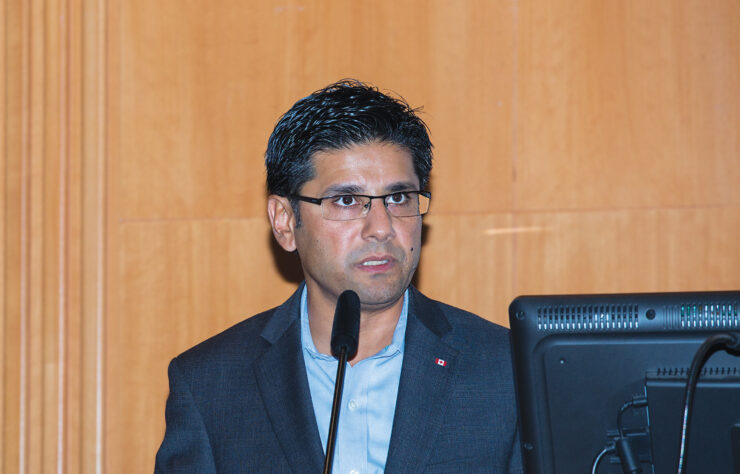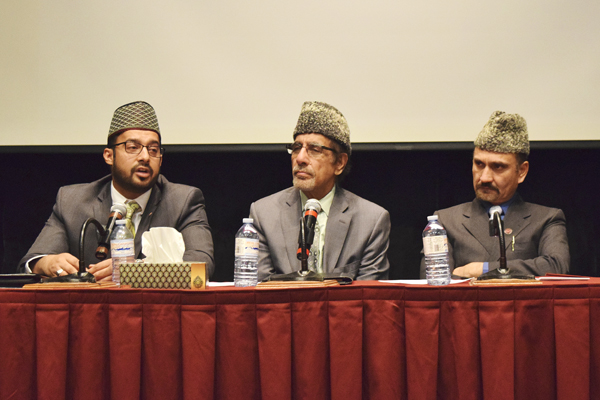Panel airs concerns about police surveillance in wake of Lagacé case
On Nov. 17, the Centre for Law, Technology and Society at the University of Ottawa, along with the U of O’s Law and Technology Student Society, held a panel discussion in Fauteux Hall on the topic of freedom of the press and surveillance.
The panel was held in light of police surveillance and the case of Patrick Lagacé and other journalists in Québec and Canada whose cellphone calls and text messages were monitored by the police.
Panelists at the event included: Amanda Connolly, a national security reporter for iPolitics and vice-president of the National Capital Region chapter of the Canadian Association of Journalists; Tamir Israel, a staff lawyer at the U of O’s Canadian Internet Policy and Public Interest Clinic; and Teresa Scassa, a U of O common law professor.
The discussion was moderated by Michael Geist, also a U of O common law professor.
In regards to the Lagacé case, the panelists highlighted the issues surrounding police force in handling warrants to surveil journalists for their sources.
The implications of living in a digital world and how technology affects democracy was also discussed, as panelists noted that people might be monitored without their knowledge.
Connolly said that for journalists, “The work right now is precarious.” She also discussed journalists not having the resources to protect themselves from being monitored.
“It makes me afraid for the next generation of people, who are at a disadvantage here,” said Connolly, noting that not everyone has the time and money to move forward with a lawsuit if their rights are violated through spying.
According to Scassa, this issue also leads to the broader issue of privacy, where there is a breach of people’s privacy if a police officer can track all forms of communication.
Scassa said that citizens in democratic societies tend to take privacy for granted, and that courts have a major role to play in protecting this privacy.
“We all have been victims of crime, or we know people who have been victims of crime, or we are concerned with being victims of crime,” said Scassa on these privacy breaches.
She further went on to discuss the ease at which a warrant can be obtained to track someone’s calls and texts, and how that person can be taken can be taken to court based on mere suspicion.
And this isn’t just in cases of fraud. “We might actually be talking about a reporter who has ticked someone off in a position of power, because they are asking questions about the exercise of that power,” said Scassa, underlining that this is a larger issue of power, trust, and democracy in society.
Lastly, Israel discussed metadata—data that gives information about other data—and how it is often collected without any official grounds for doing so.
One example of this was when the Canadian Security Intelligence Service was criticized by the federal court for collecting large amounts of metadata from online data sources without any legal justification in the Lagacé case.
Israel explained that the Canadian government is proposing to place restrictions on encryption, along with implementing data retention laws, which will obligate search engines such as Google to keep track of who interacts with whom, which could affect individuals’ privacy.
“In the era of digital communication where you have mass interactions … you can paint very detailed pictures about people just from their metadata.”





